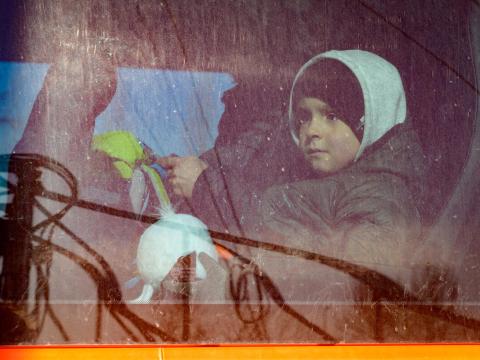Why the Ukraine crisis will ripple well beyond Europe

By Nadine Haddad, Senior Humanitarian Policy advisor, World Vision International
Thousands of lives have been lost, nearly four million refugees have fled fas cities and neighbourhoods are reduced to rubble. The human suffering in Ukraine has horrified the world as the needs of the innocent and the vulnerable are there for all to see.
But, this crisis will cause waves of need and deprivation in corners of the world far from Europe, in places you probably have not even considered, pushing the world’s hungriest further into crippling poverty. Conflicts remain a key driver of food insecurity in the world. The wider fallout of the crisis in Ukraine will be far-reaching and devastating, especially for countries dependent on food imports and aid, such as Yemen, Syria and Afghanistan.
Ukraine and Russia produce nearly 30 per cent of wheat globally. But, the conflict will disrupt new season’s planting, and prices are already increasing because of a spooked market. This will be another shock to hungry families, where bread is often the only staple keeping their children alive. It could push them over the edge. And, as wheat is a staple in diets across the world, including in some of the most conflict-ridden countries, the flow-on impact could be devastating.
This conflict will send shock waves across 43 countries where 45 million people are at risk of starvation. That 45 million figure was 39 million just a year ago, due to the socio-economic impacts of COVID. Any further shocks will be deadly.
The trouble doesn’t end there. The Ukraine crisis has magnified already rising fuel, fertilizer and freight costs, and is estimated to double or triple the prices of staple foods. Dramatically increased prices of bread, rice, pasta and cooking oil will force aid agencies, such as World Vision and the World Food Program, to source wheat from elsewhere at greatly inflated prices. With the extreme funding shortages across many humanitarian responses, aid organisations will be forced to make the impossible choice – which hungry child eats and which does not.
Mothers in conflict zones, in Afghanistan and Yemen, have told me that the hardest thing they endured was not the violent war, the abuses or the displacement, but watching their kids slowly perish from starvation and being completely helpless and voiceless.
The true test of our humanity will be if the international community stands behind these millions of children at the risk of a brutal death.
For more information about the work World Vision is doing to support those affected by the crisis in Ukraine and support our efforts click below.
Media Contact:
For further information or to organise an interview, please contact: Leah Donoghue at leah_donoghue@wvi.org